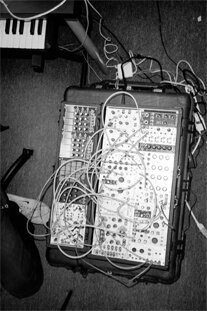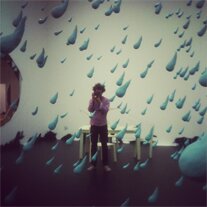MUSIC
Tyondai Braxton Interview
Tyondai Braxton surprised many by walking away from Battles at the height of the band’s popularity. Back then, he didn’t say much on why and how, but in the last few years, he branched out to the world outside of rock; he played his solo project Central Market, which was recorded during his Battles time, with some of the most established orchestras in the world including the London Sinfonietta and the Los Angeles Philharmonic, then last year, he premiered a multimedia project he named HIVE at the Guggenheim Museum. His recent endeavors seem like a hybrid of his outside-the-box approach and a lifestyle choice, but are also in line with the more fluid, organic, and collaborative projects between musicians, the likes of which we have been seeing more of in recent years. Periscope talked to Tyondai about the future of the life of a musician, and where he is at these days.
(This story was originally published in Periscope iPad edition vol. 1. For the full, interactive story with a full length video, go to . You can also see his Hive performance by clicking the top image.)


RSS Feed